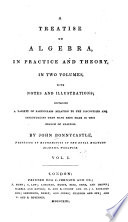 | John Bonnycastle - Algebra - 1813 - 456 pages
...бОО — 500, Conseqr x= 1OO tbe number of bushels required. 12. A labourer engaged to serve for 40 days, on condition that for every day he worked he should receive 20d., but for every day he was absent he should forfeit Sd. : now, at the end of the time, he had to... | |
 | John Bonnycastle - Algebra - 1818 - 284 pages
...9*=600 — 500, Consequently z=100the number of bushels required. 12. A labourer engaged to serve for 40 days, on condition that for every day he worked he should receive ZOd., but for every day he was absent he should forfeit 8d., : now. at the end of the time, he had... | |
 | Warren Colburn - Algebra - 1825 - 400 pages
...quantities to e subtracted have the, sign — before them, they must be changed to + in subtracting, and those which have + must be changed to — . 2....gentleman hired a labourer for 20 days on condition that, lor every day he worked, he should receive 7s., but for every day he was idle, he should forfeit 3s.... | |
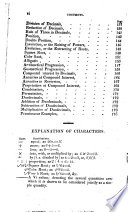 | Thomas Tucker Smiley - Arithmetic - 1825 - 224 pages
...? С Their income 2606. Ans. < A. spends 400, ( B. spends 650. 3. A labourer engaged himself for 50 days on condition that for every day he worked he should receive t dollar, but for every day that he was idle he should for felt 50 cen's, at the expiration of the... | |
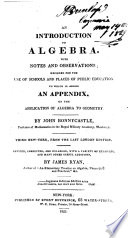 | John Bonnycastle - Algebra - 1825 - 336 pages
...9o;=tiOO-500, Consequently x= 100 the number ef bushels required. 12. A labourer engaged to serve for 40 days, on condition that for every day he worked he should receive 20d., but for every day he was absent he should forfeit 3d., : now at the end of the time, he had to... | |
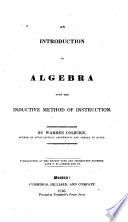 | Warren Colburn - Algebra - 1826 - 290 pages
...quantities to be subtracted have the sign — before them, they must be changed to -\- in subtracting, and those which have -\- must be changed to — ....forfeit 3s. At the end of the time agreed on he received 80 shillings. How 'many days did he work, and how many days was he idle ? Let x = the number of days... | |
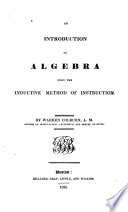 | Warren Colburn - Algebra - 1828 - 288 pages
...have the sign — before them, they must be changed to -f- in subtracting, and those which hare -f- must be changed to — . 2. A gentleman hired a labourer...forfeit 3s. At the end of the time agreed on he received 80 shillings. How many days did he work, and how many days was he idle ? Let x = the number of days... | |
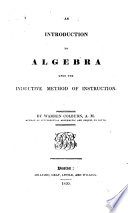 | Warren Colburn - Algebra - 1830 - 288 pages
...have the sign — before them, they must be changed to -f- in subtracting, and those which have -f- must be changed to — . 2. A gentleman hired a labourer for 20 days on condition that, for every day ho worked, he should receive 7s., but for every day he was idle, he should forfeit 3s. At the end of... | |
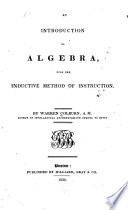 | Warren Colburn - Algebra - 1836 - 286 pages
...+ in subtracting, and those which have -f- must be changed to — . 2. A gentleman hired a laborer for 20 days on condition that, for every day he worked, he should receive 7s., but for everyday he was idle, he should forfeit 3s. At the end of the time agreed on he received 80 shillings.... | |
 | Warren Colburn - Algebra - 1837 - 288 pages
...-j- in subtracting, and those which have -f- must be changed to — . 2. A gentleman hired a laborer for 20 days on condition that, for every day he worked,...was idle, he should forfeit 3s. At the end of the lime agreed on he received 80 shillings. How many days did he work, and how many days was he idle?... | |
| |